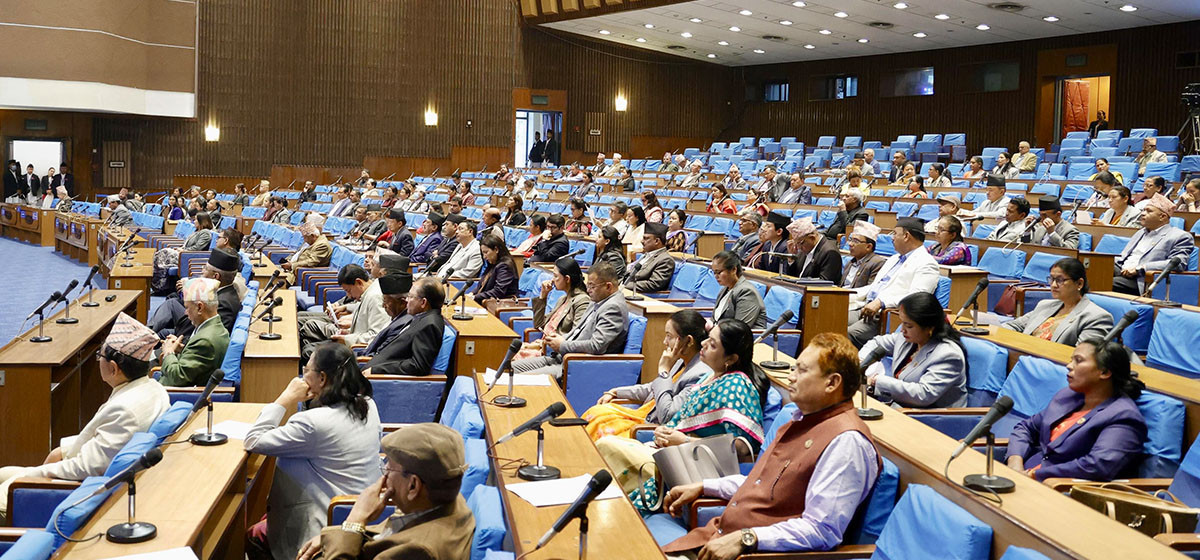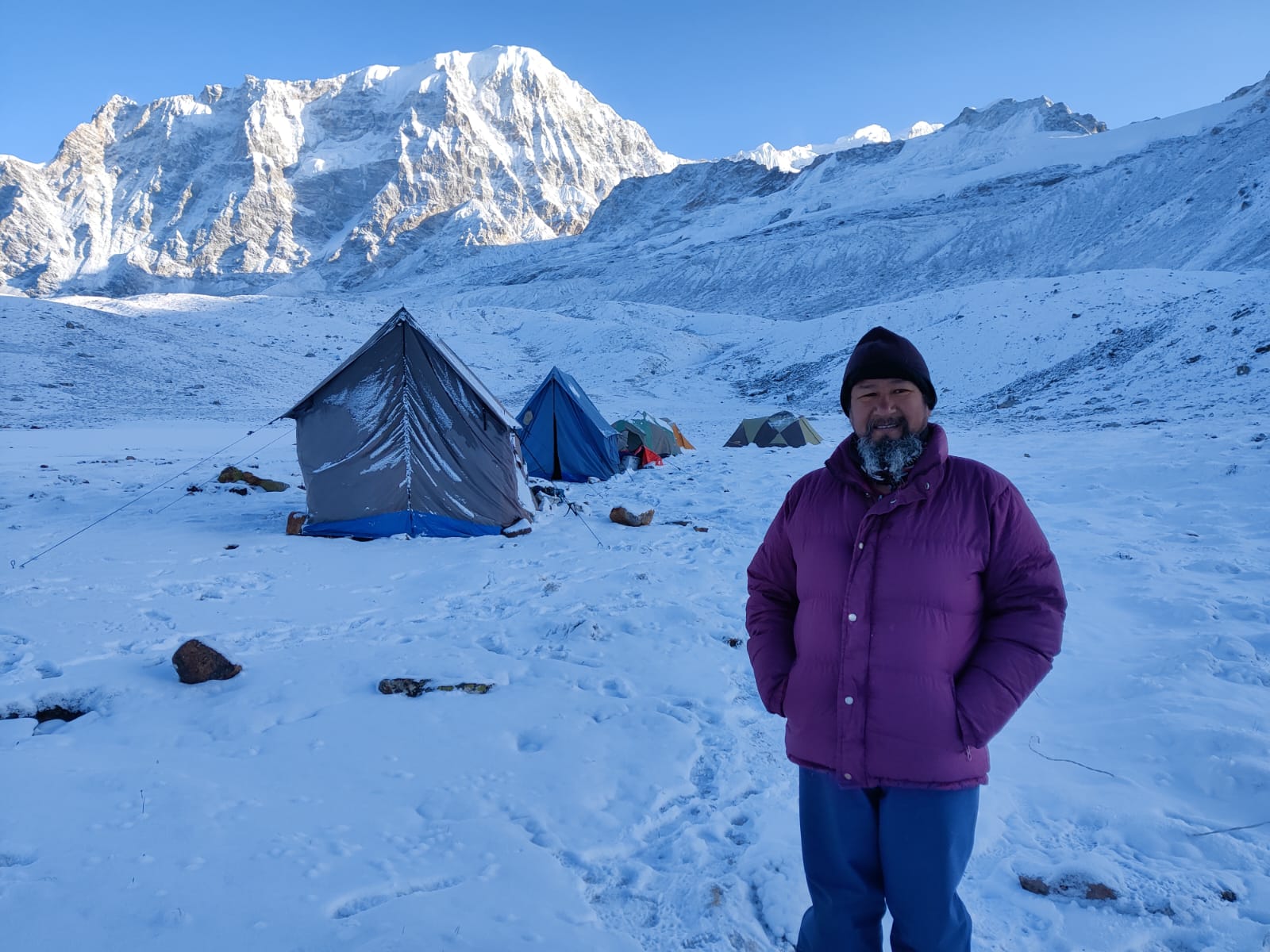KATHMANDU, July 10: The autumn leaves bring with them an end to a long summer and the start of the first fall semester for many recent high school graduates pursuing an education abroad. For Ongchhu Sherpa, a mountain guide and father to a son and daughter, both studying in Australia, it brings the quiet weight of a third autumn spent apart from his children.
“I wanted my children to get a good education,” he said. “Everyone says it's better to study in a foreign university because of the difference in the quality of education in comparison to Nepali universities.”
The opportunity of studying abroad which was once reserved for the wealthiest families in Nepal has now become accessible to a much larger population, with the number of ‘No Objection Certificates (NOC)’ being issued skyrocketing in the past two decades. A total of 416,364 NOCs were issued from 2008 to 2021, and almost a third of those were issued in the just the last Fiscal Year(FY) 2023/24 with 112,593 NOCs issued.
However, contrary to what statistics may portray, it is not an easy feat, and can quickly become a financial burden. Sherpa had to furnish myriad documents required by the consultancy to facilitate the process of foreign education for his children.
“Since we live in Kathmandu, it was difficult to travel back and forth to and from our village ward office,” he said. “Sometimes the documents were wrong or insufficient, and there was a lot of expense on just traveling.”
Another father of two daughters, Dhurva Neupane, had to ask friends, family, and neighbors for loans so as to afford their undertaking. “The embassy required proof of sufficient income, and so we had to create multiple sources and list our property to provide enough financial evidence,” he told Republica.
The initial expense is often the largest, and being able to afford it is not enough. In order for embassies to grant visas, families must provide proof that tuition and living expenses can be paid for over the length of their course. “I know of people who deposit borrowed money in smaller intervals,” Sherpa said, “The government nor the university will not see that they have asked multiple people.”
Speaker directs govt to probe Prisha Shah’s death, ensure safet...

However, the hurdles do not end there. He continued, “The embassy might see that a large amount has come from seemingly nowhere, so people deposit money in their accounts over extended periods to make it look like genuine transactions.”
In addition to being an issue of finances, it can also veer into legal difficulties. Neupane’s daughter, who has recently returned from Australia recounts some of her friends' experiences. “Some fake employment and create documents that show false sources of income because they do not have property or other sources of income. A majority of those who go abroad are middle class, and to my understanding, most of the documents they present are faked,” she explained.
The most concerning trend is that many students and their families have begun to prioritise earning over their academics. In a study conducted by Kendra Kumar Mahatara (2024) investigating the primary reasons for students seeking higher education abroad, 28.5% of respondents said it is for better employment opportunities abroad, reflecting Nepal's failure to provide not only quality education, but more importantly, the failure to provide viable career opportunities for college graduates.
Moreover, considering that the respondents ranked finding quality academic opportunities lower with only 2.85%, a pattern begins to emerge. According to Neupane’s daughter, “many people have the idea that they will stop studying and that they will begin living illegally to work.”
Sherpa claimed that “Nepali parents have a misconception that once they send their children abroad, they will be able to sustain themselves whilst sending back money.” And this sentiment is not unfounded. Some parents who have taken on large loans depend on their children to help pay them back.
“There are parents who expect their children to send money back home to pay off the loans that they have taken on. We hear of suicide cases because many students keep what they need to live, then send everything back home. Sometimes students fail to find work and or earn adequately to pay off debts while being able to sustain their lives at the same time,” Neupane’s daughter said, “and sometimes, parents expect the students to keep sending money home even after all debts have been cleared.”
“Some students earn more than others, but families would be influenced by what they hear about other students' earnings. They say things like ‘their son or daughter has sent this much money, why have you not earned this much, why have you not sent that much’. They see their own peers earnings, and that family pressure really affects them, and you see a lot of suicide cases happening because of that.”
Neupane talks about dilemmas he faced while his daughters were abroad. “I had paid a year’s worth of fees from here, but if she was unable to raise the funds for the next year, I would not be able to send her more money and I would be unable to bring her back because we had already spent so much to get her there” he said.
Nepal has had a long history of migration for economic reasons, ranking 4th in remittance contribution in percentage to GDP (2025). A Ullens IB teacher believes that “while remittance is able to support the immediate needs for recipient families, this does not translate into stimulation of the broader economy. A quality university education creates skilled and intelligent people that can manifest economic change.”
However, their optimism requires some conditions to hold validity, and as Nepal’s demographic is transforming, with a large college-aged population itching for opportunity, this mass exodus might begin to resemble the remittance blueprint.
Thus, a student’s college years, which should be one of personal growth and learning, devolves into a vicious cycle of studying and working. “Besides studying, it was just work. I worked as a housekeeper, then at a restaurant. Between studying and working, I would not have the energy to do anything else. If I had a day-off, I would not even be able to move,” said Neupane’s daughter.
According to Sherpa, “My son is working in a burger place. His earnings are sufficient to cover his living conditions and pay for the tuition costs, but it is not a secure job.” Academics become an afterthought, and earning takes precedence.
The primary intention for much of the Nepali student diaspora is not to attain skills and a fulfilling education, but secure a life abroad by any means necessary. Sherpa’s son was studying sports management, but switched to mechanical engineering, as receiving a permanent residency with a sport management degree is very difficult.
To pursue an education abroad is a difficult decision for all parties involved. “How could I be enthusiastic about sending her off? My daughter had just graduated from +2,” said Neupane, “she had not even learned how to make a cup of tea.”
His daughter chimed in, “everyone that does +2 has made up their minds that you cannot do anything in Nepal, you have to go abroad. Our seniors also go abroad, and they post photos, and we are influenced in that way. It is less about academics, and more about influence. But I still believe that I am better off having gone there because I hadn’t been able to do anything here.”
The dissatisfaction with the current state of affairs in Nepal is being voiced, perhaps not always in so many words, by the youth stoking a fiery determination through long bureaucratic processes, in lines that wrap around government offices, with eyes strained from navigating application processes on labyrinthine portals.
Sherpa finished with a sigh, “I had bought a piece of land in the Terai so that I could retire somewhere warm after decades of working on the mountains. But I had to give up that dream to afford sending my children abroad. I hope it will be worth it.”



































